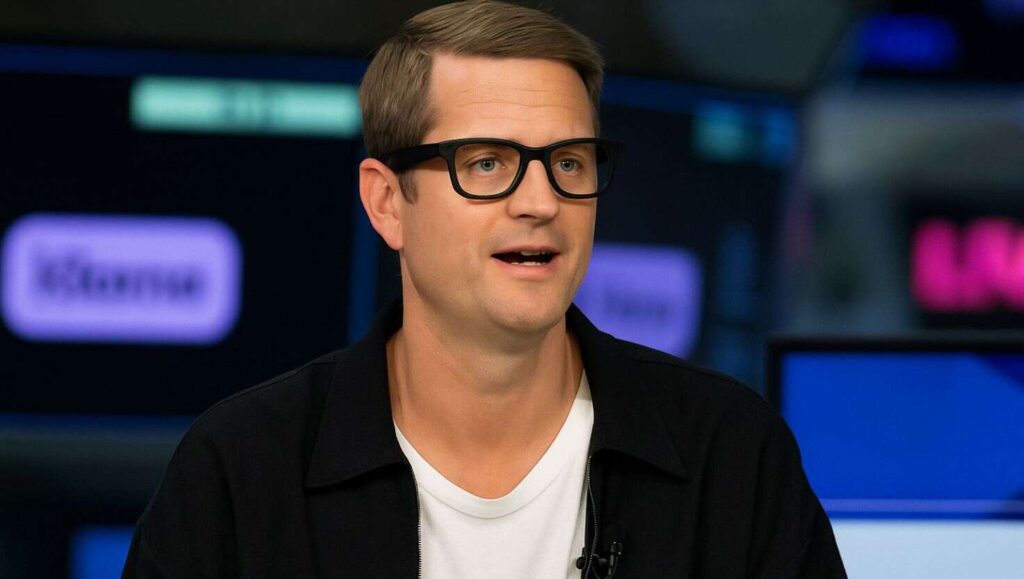Klarna’s Billion-Dollar Buzz: Unpacking the Real Story Behind the CEO’s Social Impact Pledges
Klarna’s Billion-Dollar Buzz: Unpacking the Real Story Behind the CEO’s Social Impact Pledges
New York, NY – In the fast-paced world of fintech, headlines about billion-dollar valuations and blockbuster IPOs are commonplace. Recently, whispers of a massive $1 billion stock pledge by Klarna‘s co-founder and CEO, Sebastian Siemiatkowski, have captured public attention. However, a closer look reveals a more nuanced story of corporate philanthropy and strategic social impact initiatives, rather than a single, colossal personal donation.
This article delves into the details of Klarna’s and Siemiatkowski’s financial commitments to social and environmental causes, clarifying the figures and highlighting the key initiatives for our US audience.
Go to Homepage
Founder of Klarna
Founded by a visionary trio in 2005—Sebastian Siemiatkowski, Niklas Adalberth, and Victor Jacobsson—Klarna emerged from a simple yet powerful idea: to make online shopping easier and more secure. Their “Buy Now, Pay Later” concept was revolutionary, allowing consumers to receive goods before payment and eliminating a major point of friction in e-commerce. From humble beginnings as students who met at a burger joint and struggled to gain initial investor interest, they built Klarna into a global fintech powerhouse, demonstrating remarkable resilience and a commitment to innovation that continues to reshape the financial landscape. Today, the founders’ unique story is a testament to the power of a consumer-first mindset, a core value that remains at the heart of the Klarna brand.

Klarna IPO advisors
Seeking expert guidance for its highly anticipated IPO, Klarna, the global buy-now-pay-later leader, enlisted a powerful lineup of financial advisors. The company’s initial public offering on the NYSE was led by a trio of prominent investment banks: Goldman Sachs, J.P. Morgan, and Morgan Stanley, who served as joint book-running managers. This team of advisors, along with additional bookrunners and co-managers, played a crucial role in navigating the complex public offering process, which saw Klarna successfully raise over $1 billion and achieve a valuation exceeding $15 billion. The selection of these leading financial institutions underscores the significance of Klarna’s market debut and its strategic approach to entering the public market.
The “Billion-Dollar” Question: A Corporate Commitment
The speculation surrounding a billion-dollar pledge appears to stem from a significant corporate initiative. In a move to bolster its commitment to sustainability, Klarna pledged to donate 1% of a $1 billion funding round. This amounts to a substantial $10 million contribution toward environmental and climate-focused projects. This initiative, dubbed the “1% Pledge,” is a core component of Klarna’s broader sustainability strategy.

The funds are directed towards organizations and projects that are actively working to address pressing environmental challenges. This corporate-level commitment underscores a growing trend among tech giants to integrate social responsibility into their business models.
Scrutiny Over Non-Profit Connections
Adding another layer to the narrative are recent disclosures regarding Klarna’s financial relationships with non-profit organizations founded by Siemiatkowski’s wife, Nina Siemiatkowski. Reports have indicated that Klarna has made over $16 million in payments to these entities.
While these contributions are framed as part of Klarna’s sustainability and philanthropic efforts, they have drawn scrutiny regarding corporate governance and potential conflicts of interest, particularly as the company navigates the complexities of an initial public offering (IPO). Klarna maintains that these partnerships are aimed at furthering its social impact goals. The organizations in question are focused on a range of causes, from environmental conservation to social welfare.
The Vision Behind the Giving
Sebastian Siemiatkowski, a prominent figure in the global fintech landscape, has often spoken about the responsibility of successful companies to contribute positively to society. While a personal $1 billion stock pledge has not been publicly confirmed, his influence is evident in Klarna’s strategic focus on social and environmental issues.
Klarna’s initiatives extend beyond financial donations. The company has integrated features into its app that allow consumers to track the carbon footprint of their purchases, aiming to raise awareness and promote more sustainable consumption habits. This approach reflects a holistic view of corporate responsibility, embedding social impact directly into the consumer experience.
What This Means for US Consumers and Investors
For the American market, Klarna’s social impact strategies are a significant aspect of its brand identity. As consumers increasingly favor companies with strong ethical and environmental credentials, these initiatives can play a crucial role in building brand loyalty and trust.
For potential investors, understanding the nuances of Klarna’s philanthropic and sustainability commitments is essential. While the headline-grabbing figure of a billion dollars may be a misinterpretation, the company’s multi-faceted approach to social responsibility is a key factor in its corporate narrative and long-term vision.
In conclusion, while the chatter about a personal $1 billion stock pledge from Klarna’s CEO may be an oversimplification, the reality is a compelling story of a company and its leader strategically deploying significant financial resources to address global challenges. The focus remains on corporate-led initiatives and partnerships, which, while substantial, are distinct from a singular, personal stock donation. As Klarna continues to expand its footprint in the US, its commitment to social and environmental causes will undoubtedly remain a central part of its story.
